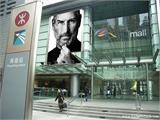Haunted Casino Stories - A True Account of Experiences at Genting Casino, Malaysia
Haunted Casino Stories: Genuine Accounts from Malaysia's Genting Casino
Column: Travelogue Added: December 7, 2010, 20:13:51 Source: Admin Clicks: 47
As soon as we arrived in Malaysia, everything changed. Typically, upon arriving at a new place, the tour guide would first teach us about local customs and polite phrases, because when in Rome, do as the Romans do. Regardless of whether you find them habitual or not, respecting local customs is essential.
In Malaysia, women are called "Pang Pang," men are called "Duan Duan." The phrase for "welcome" sounds like "Shang Ni Ma De Dang," "thank you" sounds like "Da Ni Ma Kan Xi," "eating" sounds like "La Xi," greeting is "A Ba Kan Bao," and responding is "Ba Ku Zi." The meanings aren't as harsh, but the pronunciation indeed sounds that way when spoken in Chinese. Due to the peculiar phonetics, these phrases have turned into insults among the Chinese community. However, traveling is all about relaxation, so everyone was quite humorous about it. Because they were unique, even before reaching Malaysia, these phrases had been laughed at multiple times by Thai and Singaporean guides, much like familiar jokes such as "love is like a flower." Thus, everyone already remembered them well, unlike the initial shock of hearing terms like "old mom," "PP," or "Crystal."
The intelligence of the Chinese has set an example in Singapore, but the most profound experiences come from Malaysia. Although ethnic Chinese make up only 25.3% of Malaysia's population (about six million people, Malays account for 66.1%, Indians 7.4%), the majority of the country's wealth is concentrated in the hands of the Chinese. For instance, the owner of Genting Casino, Lim Goh Tong, the owner of large tracts of real estate seen along the road, Lee Chiu Yong, and the current owner of the Malaysian royal palace properties, Tan Chin Yong, are all ethnic Chinese.
The history of the Chinese in Malaysia is also a tale of blood and tears. Most of them were brought here as indentured laborers during British colonial rule in the early 20th century. Promised high wages and contractual agreements, thousands of Chinese laborers were deceived from southern China to Southeast Asia. After over a month at sea, many who fell ill were thrown overboard to prevent the spread of disease. Upon arrival in Malaysia, they were sent to various places to mine tin, working more than ten hours a day submerged in water, which eventually led to rheumatism. To earn money to return home, they worked tirelessly, but being far from their homeland, they eventually settled here and started families, producing many children. The first generation typically had seventeen or eighteen children, not due to a lack of family planning, but because they wanted free labor. Later, after becoming business owners, they needed help. Through the diligence and efforts of the first generation, the third generation now lives comfortably, with most having assets worth seven figures or more.
However, Indian indentured laborers who came around the same time remain impoverished to this day. After arriving, most Indians were sent to palm oil plantations to process rubber. They lived in mobile stilt houses and bamboo houses, and even today, their living conditions haven't improved. Poverty persists because both Indians and local Malays are easily satisfied; once they have enough to eat, they stop working. Unlike the industrious Chinese who work day and night without rest, earning beyond what is necessary, accumulating wealth over generations has made a significant difference.
The most unforgettable part of our trip to Malaysia was undoubtedly Genting Casino. It wasn't just because of its luxury and extravagance but because of the numerous stories associated with it. Genting Casino was funded and built by the Chinese Lim Goh Tong, located on the top of a densely forested yet uninhabited mountain several kilometers away from the city center. The name "Genting" comes from its high altitude, accessible only by cable car. The Genting cable car, spanning 3.4 kilometers, is the world's longest. In 1965, when Lim Goh Tong spent 600,000 ringgit to purchase this remote and uninhabited mountaintop, people called him "Crazy Lim." Lim Goh Tong, originally from Fujian Quanzhou, was born into a small merchant family. As the eldest son, he lost his father at a young age and sought livelihood in Southeast Asia under the care of his uncle. He worked as a construction worker and later as a dock laborer. In 1941, during the Japanese invasion of Malaysia, amidst the chaos, he realized that wealth was unstable, so he bought a palm oil plantation. Three years later, when the Japanese left and the British returned, he sold the plantation to the British, earning his first fortune. His life's turning points were all guided by a fortune-teller at the docks, whom he trusted deeply. He changed his name from Wu Tong to Go Tong based on the fortune-teller’s advice. The fortune-teller also advised him to form connections with monks, hence the continuous renovations at Genting Casino—elevators moved from one place to another each year.
After the casino was built, its condition was poor, so Lim Goh Tong decided to establish a casino at Genting, knowing the Chinese penchant for gambling. However, Malaysia is an Islamic nation where gambling is prohibited. He lobbied the president, arguing that casinos could generate substantial tax revenue and attract foreign tourists. He promised to share the casino's income with the government, and eventually, the government agreed to allow the casino. After over forty years of development, Genting Casino became vast, boasting 6,118 rooms. Its opulence and grandeur surpassed even Macau's City of Dreams Casino. It integrates dining, accommodation, and entertainment, allowing visitors to enjoy all luxuries without leaving the premises. It might be more aptly called a "gambling city" rather than just a casino.
Despite its calm exterior, many bloody stories happen behind the scenes. For instance, in our accommodation, room windows could only open eight centimeters wide—just enough to extend one hand out before hitting resistance. Logically, since the building is atop a high mountain, opening the windows would naturally cool the interior without air conditioning. But why limit the opening? It turns out this precaution is to prevent suicides. In earlier years, when Malaysia was poorer, men went abroad to work illegally ("jumping planes"—traveling to Japan on tourist visas and staying there to work illegally), while their wives stayed home, bored and idle. They frequented the casino, enticed by the affordable 5-ringgit cable car ride and free food and drinks inside. Many gambled away their money and resorted to high-interest loans, hoping to recover their losses, but often ended up losing more, leading some to despair and jump to their deaths. The seventh floor of Genting Casino is usually locked and rarely opened, partly because many deaths occurred there, and it is rumored to be haunted.
Our tour guide recounted a personal experience: one year, she led a group from Jiangsu Wutong. She clearly remembered one tourist born on July 14th, who coincidentally stayed in room 7714. Though only in his thirties and in good health, he was found mysteriously dead the next morning. Another incident involved a guide staying alone in a room who woke up in the middle of the night to see a ghostly woman lying on the bed, her hair disheveled and face covered in blood. This terrifying experience drove the guide to mental collapse, screaming and fleeing the room. Since then, if no one accompanied them, the guides preferred to wander in the casino lobby all night rather than stay alone.
Malaysia, Singapore, the Philippines, and Indonesia were collectively referred to as Nanyang (South Seas) in ancient times and have long-standing ties with China. Admiral Zheng He made seven voyages to the Western Seas, five of which reached Malacca, leaving behind landmarks like Sanbao Hill, Sanbao Well, and Sanbao Temple. Sanbao Hill, also known as Chinese Hill, is the burial ground for many Chinese. Interestingly, locals don't call cemeteries by that name but refer to them as clubs or nightclubs. On Sanbao Hill, one tomb mound abuts another, but across a small road lies the Muslim cemetery, presenting a vastly different landscape.
Malaysia is an Islamic nation where men, upon undergoing circumcision and converting to Islam, can legally marry up to four wives. Marriages are simple; a bride price of 15 ringgit (approximately equivalent to RMB 37.5 yuan) and a gold ring suffice, with the bride's family providing appliances, furniture, and hosting the wedding banquet. Guests attending the banquet need only give 5 ringgit as a gift. Malay girls marry at 16 or 17, considered spinsters if they surpass twenty. Men, however, can still reproduce in their forties or fifties, thanks to frequently consuming Malay ginseng tea, which, though bitter, clears and strengthens the kidneys. Despite the hot climate, Malays eat spicy curry and use their hands to eat rice daily without developing heatiness. This is attributed to the benefits of Malay ginseng and the habit of washing their bottoms with cold water. Therefore, in Malay households, every toilet has a hose for washing, and when shaking hands with Malays, always use your right hand—it's impolite to use the left.
With multiple wives and no contraception allowed in Islam, each family often has over a dozen children. Consequently, although their economic income isn't too bad, Malaysians are very frugal. The government subsidizes each household with 1200-1600 ringgit monthly, provides free education, and heavily subsidizes healthcare, essentially making it free. Our guide mentioned that a few years ago, she gave birth to her first child and stayed in the hospital for three days and two nights, costing only 17 ringgit (equivalent to RMB 42.5 yuan). In 2004, her second child required treatment for jaundice, and she stayed in the hospital for four days, costing only 28 ringgit (equivalent to RMB 70 yuan). Not only do locals benefit from such medical subsidies, but foreign workers also receive similar advantages.
The average monthly income for middle to upper-class Malaysians is over 2,000 ringgit. Properties developed by the Green Wild Group, invested by Chinese businessman Lee Chiu Yong, offer luxurious apartments with 150 square meters of indoor space and no common area charges (as Malaysian properties calculate solely based on indoor space). A four-bedroom, two-living-room unit costs only 162,800 ringgit, while a standard version of the same size is merely 90,000 ringgit (equivalent to RMB 225,000).
Malaysia has a population of 26 million and covers an area of 333,000 square kilometers, with 75% being undeveloped tropical rainforest. Originally an agricultural country focused on palm oil cultivation, in 1985 Prime Minister Mahathir Mohamad began transforming the nation, encouraging rural populations to move to cities, teaching farmers crafts, and building free housing for them in urban areas. However, after moving in, they engaged in unauthorized constructions, leading locals to nickname these areas "piglet zones" or illegal zones. Over more than a decade, Mahathir successfully transformed Malaysia from an agricultural country into a developing nation. Before the 1997 financial crisis, 1 US dollar could exchange for 2.5 ringgit, but after the crisis, it took Malaysia three years to restore its currency value, whereas Indonesia hasn't recovered to this day. Thus, the Malaysian people greatly admire Mahathir, affectionately calling him Dr. Mahathir (he was previously a doctor). Although he served from 1981 and retired in 2002, the people still regard him as their prime minister—a leader who benefits the people without seeking personal gain, like King Rama V of Thailand, Lee Kuan Yew of Singapore, and Sun Yat-sen of China.
Malaysia is a constitutional monarchy where the head of state is titled "Ah Gong," and each of the 13 states has its own governor, called Sultan, who selects the prime minister for a five-year term. The current prime minister, Abdullah Ahmad Badawi, is an anti-corruption pioneer. Previously, people dared to give gifts and bribes, but now they don’t.
The king, currently in his forties, moved his residence from the old palace, deemed unlucky, to the home of Chen Zhenyong, whose feng shui was considered favorable. After Chen Zhenyong's death, he was buried in his own residence, so the palace opens twice annually—once for the Malay New Year and once for Qingming Festival, allowing Chen's family to pay respects. Despite its simplicity, resembling an 80s factory gate in China, the palace entrance consists of two cement pillars adorned with Maya stones and two small doorways for pedestrians, less impressive than a factory gate compared to Bangkok's Grand Palace or Beijing's Tiananmen. Though seemingly simple, it is still a palace, reportedly with guards stationed at the entrance riding horses whose salaries exceed those of humans, using better shampoo for cleaning.
The palace spans seven hectares. During World War II, the Japanese occupied Malaysia for three years and eight months. After the Japanese left, the British returned. Initially, the king resided in his own palace, but two consecutive kings died within three years, prompting the third king to avoid staying there. Unable to find a suitable location for a new palace, he eventually chose Chen Zhenyong's home for its auspicious feng shui.
Speaking of Japanese aggression, it has become a national grudge in Southeast Asian countries. When we visited the Bridge on the River Kwai in Thailand, there were no Japanese tourists there because the locals would throw eggs and stones at them whenever they saw them. Hence, since the 1980s, no Japanese tour groups have been received there.
Thailand's security situation isn't ideal, nor is Malaysia's, especially in the Malacca Strait region, historically a pirate-infested area with a long tradition of theft. Located at the exit of the Indian Ocean and Bay of Bengal, the Malacca Strait has been a crucial traffic route and strategic battleground since ancient times. After the Dutch occupied Malacca, they demolished local buildings and rebuilt them in their style. The Dutch architecture we see now is all vermilion red, but the tour guide said it wasn't originally so—the red color was added later by the Chinese. After the Dutch occupied Malacca, they treated the local Chinese unfairly, often harming them. Out of hatred, the Chinese would chew betel nuts and spit saliva onto the walls of Dutch houses, staining them with red marks. Unable to clean the walls, the Dutch painted them red, resulting in the current architectural style.
Although Malaysia is not geographically large, it boasts several world records, including the tallest building, the Petronas Twin Towers. These towers serve as the office buildings for Malaysia's national petroleum company. The Kuala Lumpur TV Tower is also among the world's tallest, ranking fourth globally. China's Shanghai Oriental Pearl TV Tower ranks third in global height rankings.
Driving along the roads, various buildings continuously appeared in sight. Whenever tall structures or new residential complexes came into view, the Chinese tour guide informed us that the owner was Chinese, making us feel quite proud. According to the guide, not only are Malaysians wealthy, but many other countries share similar situations. For instance, the anti-Chinese riots in Indonesia a few years ago were caused by the excessive wealth of the Chinese. At the time, the financial crisis swept through Southeast Asia, causing severe inflation in Indonesia, with 1 ringgit exchanging for 1,000 Indonesian rupiahs (the current average monthly income per person in Indonesia doesn't exceed $20 USD). While ordinary Indonesians struggled to feed themselves, local Chinese businessmen lived comfortably, feeding their dogs better than the average Indonesian. This sparked strong dissatisfaction and imbalance among Indonesians, initially leading to desperate looting of Chinese goods, escalating into smashing Chinese shops, culminating in the shocking anti-Chinese riots of 1998, resulting in numerous Chinese deaths. Consequently, many Chinese fled Indonesia out of fear. In Thailand, our guide also mentioned that when the remnants of the Kuomintang established themselves there, they relied on borrowing food from local Thai residents. Initially generous, the Thais stopped lending when some refused to repay. Our compatriots are indeed intelligent, but if intelligence turns into cunning and selfishness, it becomes self-destructive, much like the Jews who, despite their intelligence and creation of immense wealth, have a less-than-stellar reputation. During the Second World War, Hitler carried out genocide against the Jews, rooted in social background and historical context. Therefore, truly intelligent people are those who reflect and learn from experience. Those who embrace love, kindness, and generosity are the truly wise ones who benefit both themselves and others.
This trip to Malaysia provided me with insights into my own country and ethnicity from another perspective, uncovering aspects I hadn't noticed before. Though not filled with praise and glorification, I believe these reflections should still be welcome. I am grateful for this opportunity to better understand myself. Just as a person needs to step outside their home, interact with society, and compare themselves with others to truly know their strengths and weaknesses, I am fortunate to have had this chance to recognize myself.



